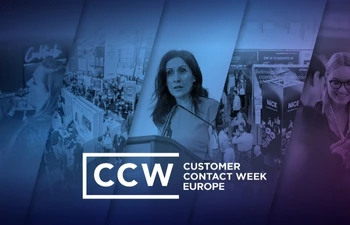How ChatGPT Integration Will Revolutionise the Contact Centre
With AI set to fundamentally transform a host of industries, contact centres could soon use ChatGPT integration to deliver an enhanced customer experience.
Add bookmark
Artificial intelligence (AI) is no longer the sole concern of futurists and science fiction writers - it is having a genuine impact today. Recently, this impact has focused on ChatGPT, a new AI chatbot that is expected to revolutionise the economy by disrupting many fields of work, from journalism to finance.
Another area where ChatGPT is set to have a significant impact is the contact centre. The implications of this new technology will transform the role of the contact centre agent and businesses need to grasp this sooner rather than later.
What is ChatGPT and how does it work?
ChatGPT is a natural language processing tool. Although this tool can be used to complete several different tasks, from composing music to creating graphics, it is best known as an AI chatbot. It is a tool for creating human-like conversations, essays, and emails and is set to fundamentally reshape many industries.
One of the things that makes ChatGPT truly transformative is the fact that it is generative rather than conversational. AI chatbots are not new. Most e-commerce outlets will respond to customer queries, initially at least, using a live chatbot powered by AI. What makes ChatGPT revolutionary is the fact that it can create something entirely new. To use ChatGPT, individuals simply need to provide the AI software with a prompt. ChatGPT then scours vast amounts of data to produce content that corresponds to this prompt. Want ChatGPT to write the best man speech for a wedding you’re attending? Need a quick cover letter for a job you’re applying to? ChatGPT can do all this and more.
ChatGPT in the Contact Centre: How it fits in
A useful illustration of what can be achieved with ChatGPT can be found in the contact centre. In the not-too-distant future, it is entirely plausible that organisations will train a version of the ChatGPT software on contact centre transcripts. This will enable it to provide marketing tips, subject matter expertise and customer profiling in a fraction of the time it would take a human agent.
As such, ChatGPT can help with the personalisation of customer interactions, allowing low-level customer queries to be met without any manual input at all. Human agents will still be required, for the foreseeable future at least, to handle value-add services, while ChatGPT helps with everything else. Benefits of ChatGPT in the Contact Centre Industry: ChatGPT’s potential in the contact centre is generating a great deal of excitement. Trained on 175 billion data points, it is predicted to create several benefits, including - Enhanced Customer Experience: ChatGPT integration can allow contact centres to streamline operations. By rapidly analysing a huge amount of data, ChatGPT can provide human agents with a better understanding of customer needs, so solutions can be offered more quickly.
- Improved Efficiency: To fully grasp a customer query, contact centre agents may have to ask repeat questions or manually scroll through a database of previous interactions. With ChataGPT, this is no longer the case. Contact centres can use the AI chatbot to summarise lengthy interactions, reducing wasted time and minimising customer frustration.
- Reduced Operational Costs: Using ChatGPT in contact centres could help organisations greatly reduce their operational outgoings. In terms of labour costs, for instance, fewer agents will be needed to satisfy customer requests.
- Improved Agent Productivity: The generative nature of ChatGPT means contact centres can ask the software to write emails, automate support, and build on previous customer interactions. This means agents can meet many more customer demands than would have been possible previously.
- Improved Customer Insights: Every time a customer interacts with a contact centre, new data is created. With ChatGPT, this data can be analysed to improve agent transcripts, better understand customer intent, and optimise conversations. Challenges with ChatGPT Integration: Although much of the excitement around ChatGPT is justified, there are several challenges that must be overcome before its many benefits can be leveraged within the contact centre space. These challenges include:
- Data Privacy: Among the data powering ChatGPT’s generative AI tool is sensitive information that people use to identify themselves. An individual is unlikely to have given ChatGPT consent to use this information, which may be incorrect, private or copyrighted. What’s more, ChatGPT records input from every interaction. ChatGPT has already been banned in Italy over privacy concerns and fears over the software’s collection and use of data are only likely to grow.
- Ethics and Bias: ChatGPT is underpinned by existing data, which means that if bias or questionable ethics are contained within this data, ChatGPT will perpetuate them. This presents a dilemma for contact centre staff, especially if they want to engage with a diverse customer base.
- Technical Challenges: Technical issues around ChatGPT include the fact that it regularly exceeds capacity. Should this hold up a contact centre’s ability to respond to a query, this is likely to lead to increased customer attrition. Other challenges include the fact that it is far from flawless. Generative AI is still a relatively new concept and can’t always respond as effectively as a human agent.
- Resistance from Employees: The idea of using AI in the contact centre is bound to receive some pushback - from customers and employees alike. Not only is this resistance likely to stem from worries over the types of answers ChatGPT may give, but also the implications that it may have for job security. If ChatGPT could one day replace agents, it’s unlikely they will support its use in the contact centre.
The Future of ChatGPT in Contact Centres
ChatGPT may have only been released late last year but it is already being talked about in terms of the economy-wide disruption that it could cause. Microsoft recently announced ChatGPT integration for its search engine Bing and contact centres around the world could be about to follow suit. First, several hurdles around privacy, ethics and industry inertia must be overcome. If they can, contact centres could see costs fall, employees could see their work augmented by vast reams of data, and customers could receive an improved experience.
























